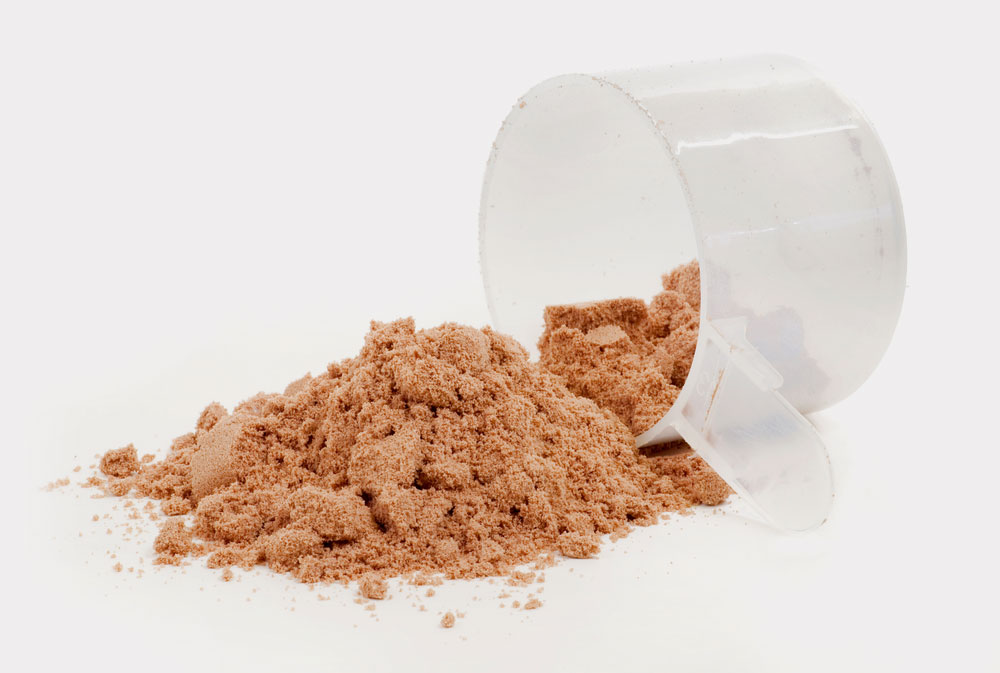The Zen of Weight Lifting
The Zen of Weight Lifting
Chop wood, carry water and other lessons that apply far beyond the gym.

One of my favorite movements at the gym is called a farmer’s carry. You hold a heavy weight — for me, around 95 pounds — in each hand and attempt to walk with a solid, upright posture for between 30 and 60 seconds.
Once, while my workout partners and I were carrying, as we say, at our local YMCA, an older gentleman enthusiastically asked, “What’s it for?” I was quick to explain that farmer’s carries work your grip, core, arms, legs and even cardiovascular system — an utterly elegant full-body exercise. But the man wasn’t satisfied. “What’s any of it for?” he exclaimed, alluding to the two hours I spend repetitively moving iron every Monday, Wednesday and Friday morning.
It’s a good question. The physical and mental health benefits of weight lifting are well documented. Weight training can help us to maintain muscle mass and strength as we age, as well as better mobility and metabolic and cardiovascular health. It may help ease or prevent depression and anxiety, and promote mental sharpness.
And yet, regardless of why anyone starts lifting weights in the first place, most people I know who stick with the sport over the long haul don’t do it because it’s a means to an end. For us, lifting weights becomes a transformative practice to be undertaken primarily for its own sake, the byproduct of which is a nourishing effect on the soul.
Weight lifting offers participants a chance to pursue clear and measurable goals with outcomes that can be traced directly back to oneself. In his book “Shop Class as Soulcraft,” the philosopher Matthew Crawford writes that “despite the proliferation of contrived metrics,” so many activities in the modern world suffer from “a lack of objective standards.” In the workplace, for example, a job well done is almost always contingent on external factors like office politics, the opinions of your supervisors or the mood of your clients. In many sports, outcomes are affected by things like weather, equipment, officiating or the performance of teammates.
In the weight room, however, it’s just you and the bar. You either make the lift or you don’t. If you make it, great. If not, you train more, and try again. Some days it goes well, other days it doesn’t. But over time, it becomes clear that what you get out of yourself is proportionate to the effort you put in. It’s as simple and as hard as that. A kind of straightforwardness and self-reliance that gives rise to an immense satisfaction, a satiating feeling that makes it easier to fall asleep at night because you know you did something real, something concrete, in the world.
This doesn’t mean that progress happens fast or is always linear. Consistency and patience are key. If you try to rush the process or force heroic efforts, you invariably wind up getting hurt. Weight lifting, like so much in life, demands showing up day in and day out, taking small and incremental steps that, compounded over time, lead to big gains.
Whether you like it or not, there will be plateaus, which in my experience tend to occur right before a breakthrough. Weight lifting teaches you to embrace them, or at the very least accept them. This is an important outcome, with consequences extending far beyond the gym. “In the land of the quick fix it may seem radical,” writes George Leonard, a pioneer of the human potential movement in the 1960s, “but to learn anything significant, to make any lasting change in yourself, you must be willing to spend most of your time on the plateau, to keep practicing even when it seems you are getting nowhere.”
For most, the plateau is a form of purgatory. But to advance beyond the low-hanging fruit in any meaningful discipline — from weight lifting, to writing, to meditation, to marriage — you must get comfortable spending time there. Weight lifting shoves this reality in your face since progress, or in this case, lack thereof, is so objective. Yes, you can make tweaks, some of which will prove beneficial. But none of that matters if you don’t keep showing up and pounding the stone.
But here’s a paradox: Pound too hard or too often, and you’ll run into problems. The only way to make a muscle stronger is to stress it and then let it recover. In other words, you’ve got to balance stress and rest. Exercise scientists call this “progressive overload.” Too much stress, not enough rest, and the result is illness, injury or burnout. Too much rest, not enough stress, and the result is complacency or stagnation. It’s only when yin and yang are in harmony that you grow — another lesson that applies to a lot more than lifting weights.
It is true that from the outside, weight lifting can seem dull or boring — same movements, same barbells, same people at the same gym. But once you steep yourself in the sport you realize — and not just intellectually but also in your bones — that it contains the essential ingredients for human flourishing. The perennial wisdom traditions and decades of psychological research point to three basic needs that, when fulfilled, allow people to thrive. Weight lifting offers all three in full:
· Autonomy: The ability to exert oneself independently and have control over one’s actions.
· Mastery: A clear and ongoing path of progress that can be traced back to one’s efforts.
· Belonging: Being part of a community, lineage or tradition that is working toward similar goals.
None of this is about achieving a specific result or acquiring some bright and shiny object and then suddenly becoming content, an illusion we chase outside of the gym all the time. The Zen of weight lifting — the joy, fulfillment, hard-earned calluses and growth — lives in the process, in the journey. That’s why if you hit a big personal record lift, sure, you’ll enjoy the moment. But odds are, you’ll be back — same movements, same barbells, same people at the same gym — for your next scheduled workout.
There’s an old Eastern adage: “Before enlightenment, chop wood, carry water. After enlightenment, chop wood, carry water.” It’s great training advice too.
Brad Stulberg (@Bstulberg) writes and coaches on performance and well-being. He is co-founder of the Growth Equation and co-author of “Peak Performance” and “The Passion Paradox.”





